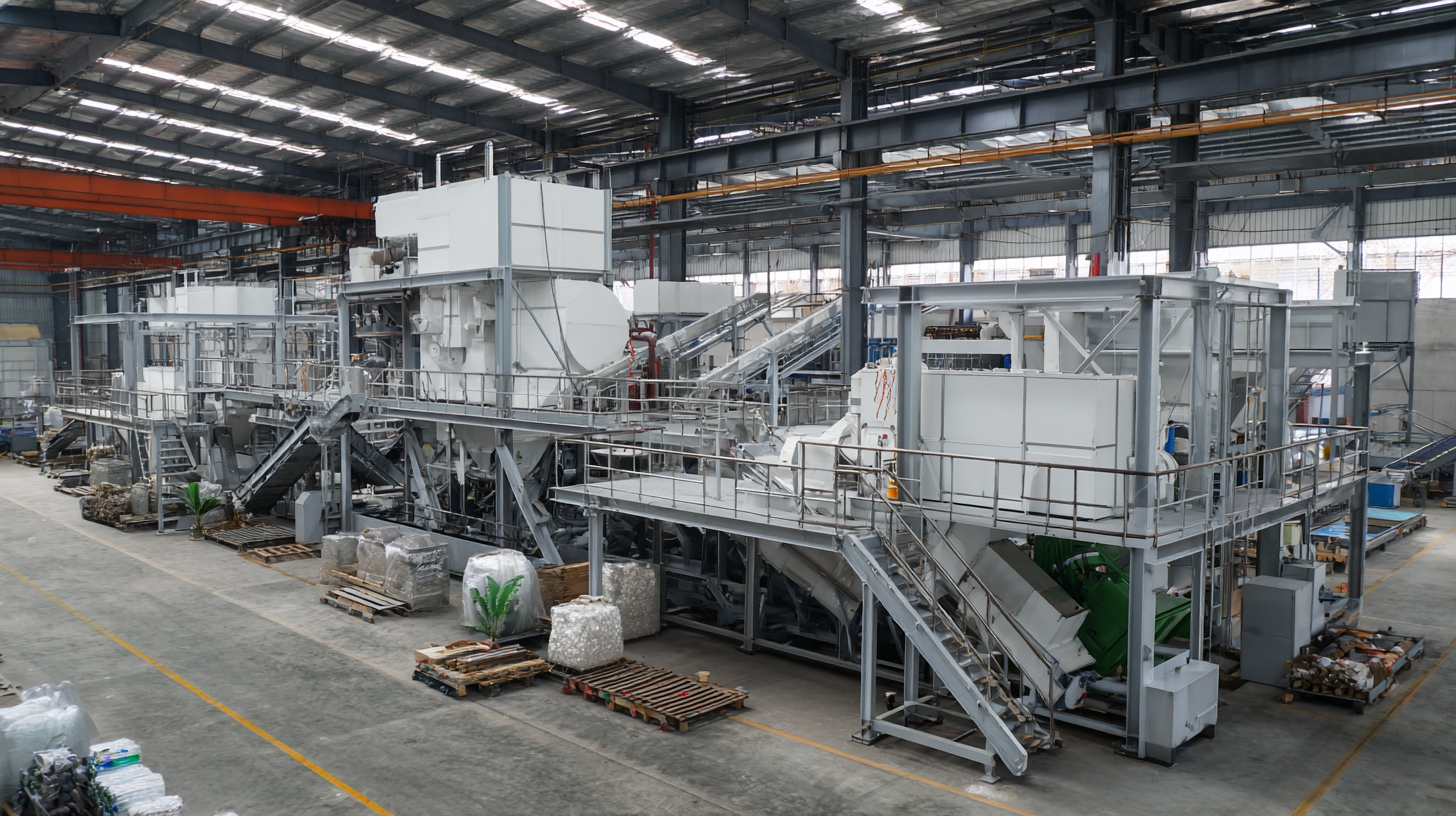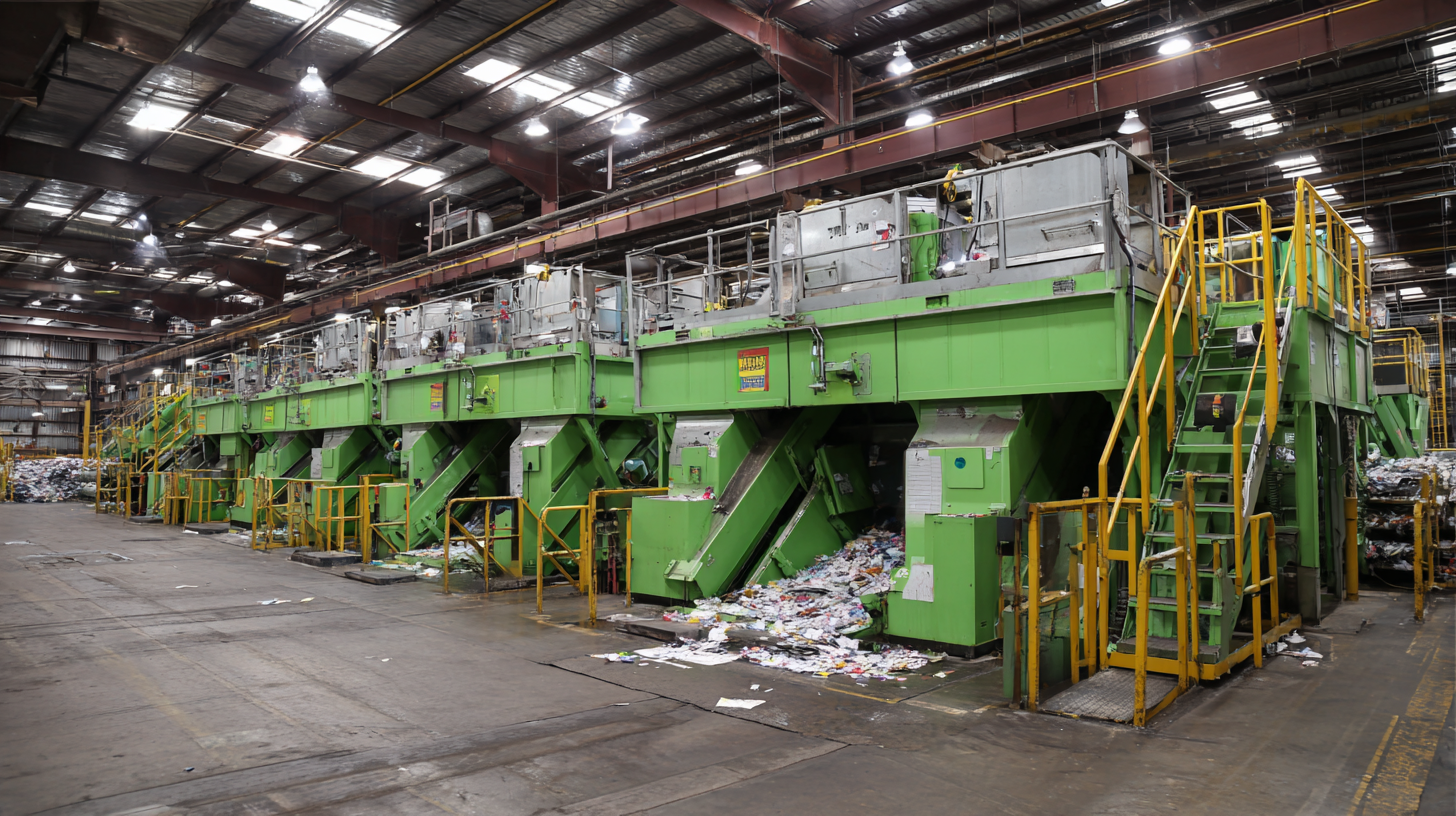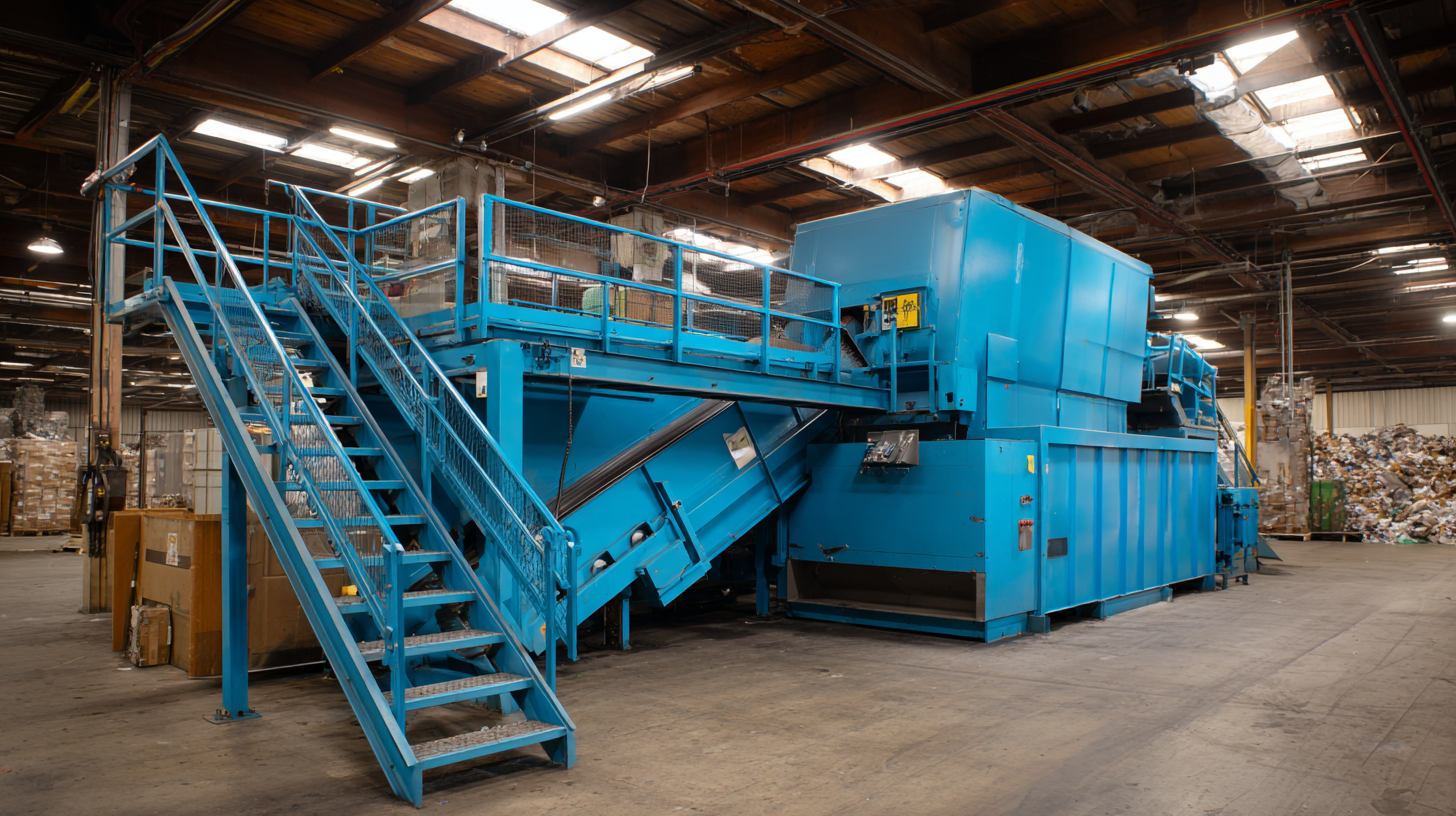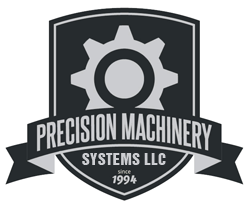How to Identify Top Tier Suppliers for Best Recycling Machinery in a Competitive Market
In today's competitive market, identifying top-tier suppliers for Recycling Machinery is critical for businesses looking to optimize their waste management processes. According to a report from the Global Recycling Foundation, the global recycling market is expected to exceed $600 billion by 2025, driven by increasing environmental awareness and stringent regulations on waste disposal. Moreover, the demand for advanced recycling technologies is projected to grow by 15% annually, highlighting the need for reliable suppliers who can provide innovative machinery that meets industry standards. By understanding the key factors that set apart leading suppliers, businesses can make informed decisions, secure quality equipment, and ultimately enhance their operational efficiency in the recycling sector. This ultimate guide will delve into the essential criteria for evaluating suppliers and ensuring that your investment in Recycling Machinery yields the best possible returns.

Identifying Key Metrics for Evaluating Recycling Machinery Suppliers in 2023
In the competitive landscape of 2023, identifying top-tier suppliers for recycling machinery requires a strategic approach focused on key metrics. First and foremost, assess the supplier's industry experience and reputation. Look for those who have established a solid track record in delivering reliable and innovative recycling solutions. Engaging with industry reviews and testimonials can provide insight into their reliability and performance.
Another critical metric is the supplier’s commitment to technology and innovation. As recycling technologies evolve, the ability to adapt and incorporate advanced machinery becomes vital. Suppliers who invest in research and development are more likely to offer machinery that enhances efficiency and sustainability. Consider checking their portfolio for any cutting-edge technologies or patented processes that can improve recycling outcomes.
Tips: When evaluating potential suppliers, request case studies that demonstrate their machinery in action, showcasing performance metrics such as throughput and efficiency rates. Additionally, inquire about their customer support and training services. A supplier that stands by their product with robust support can significantly impact your operations and overall productivity.
Top Tier Suppliers for Recycling Machinery - Key Metrics Evaluation
Understanding Market Trends: The Rise of Sustainable Practices in Recycling Industries
The rise of sustainable practices in the recycling industry is driving significant market changes, reflecting a broader global trend towards greener solutions. As industries increasingly focus on sustainability, the demand for efficient recycling machinery has grown. This shift is not merely a response to consumer preferences but also a strategic adaptation to regulatory pressures and environmental awareness. Companies are leveraging innovative technologies, such as AI, to optimize recycling processes and enhance productivity while minimizing costs associated with sustainability efforts.
Moreover, the competitive landscape compels suppliers to continuously innovate, creating machinery that not only meets current recycling needs but also anticipates future requirements. This evolving market is characterized by an expanding share of eco-friendly materials like nylon and the integration of advanced technologies that streamline operations and improve recyclability. As firms in various sectors seek to adopt more sustainable practices, understanding these market trends becomes crucial for identifying top-tier suppliers who can deliver high-quality, environmentally responsible equipment that aligns with their green initiatives.

Assessing Supplier Certifications and Compliance with Regulatory Standards
When looking for top-tier suppliers of recycling machinery, it is vital to assess their certifications and compliance with regulatory standards. Certifications such as ISO 9001, which focuses on quality management, indicate that a supplier follows established best practices and is committed to continuous improvement. Additionally, certifications relevant to environmental management systems, like ISO 14001, signal a supplier’s dedication to minimizing their ecological footprint and adhering to sustainability goals. This ensures that the machinery provided not only meets operational standards but also aligns with your environmental responsibilities.
Compliance with national and international regulatory standards is equally critical in the selection process. Suppliers should adhere to local regulations regarding safety and environmental impact, as non-compliance can lead to legal issues and damage to your reputation. It is essential to request documentation that verifies compliance and to conduct regular audits of your suppliers' operations. By prioritizing certified suppliers who maintain high regulatory standards, businesses can build a reliable network that enhances operational efficiency and supports sustainable practices in an increasingly competitive market.
How to Identify Top Tier Suppliers for Best Recycling Machinery in a Competitive Market - Assessing Supplier Certifications and Compliance with Regulatory Standards
| Supplier Location | Machinery Type | Certifications | Regulatory Compliance | Customer Ratings | Delivery Time (Weeks) |
|---|---|---|---|---|---|
| North America | Shredders | ISO 9001, CE | EPA Compliant | 4.6/5 | 6 |
| Europe | Granulators | ISO 14001, CE | REACH Compliant | 4.8/5 | 8 |
| Asia | Compacting Systems | ISO 45001 | Local Environmental Standards | 4.5/5 | 4 |
| South America | Baling Equipment | ISO 9001, Certified Energy Star | Sustainability Certifications | 4.7/5 | 5 |
Analyzing Supplier Performance: Case Studies of Successful Recycling Machinery Providers
In the competitive landscape of recycling machinery, identifying top-tier suppliers is crucial for maximizing operational efficiency and sustainability. Recent industry reports indicate that the global recycling machinery market is projected to reach approximately $9 billion by 2026, growing at a CAGR of 5.5% during the forecast period. This growth is driven by increasing regulations and a heightened emphasis on environmental sustainability, pushing companies to invest in reliable recycling technologies.
Case studies reveal that successful recycling machinery providers consistently demonstrate superior supplier performance through effective quality management systems and innovative technological advancements. For example, Company X implemented a comprehensive supplier evaluation framework that analyzed not just economic factors but also environmental and social governance (ESG) criteria. This led to a 20% reduction in operational costs and a significant improvement in processing efficiency. Similarly, Company Y’s partnership with top-tier suppliers resulted in a breakthrough recycling equipment solution, increasing throughput by 30% while minimizing energy consumption. Such outcomes underline the necessity for businesses to scrutinize supplier performance meticulously, focusing on long-term sustainability and innovation as key determinants for success in the recycling machinery sector.

Leveraging Technology: How Innovation Impacts Supplier Selection in Recycling Sector
In the ever-evolving recycling sector, leveraging technology is crucial for identifying top-tier suppliers of recycling machinery. Innovations such as artificial intelligence, machine learning, and data analytics play significant roles in the supplier selection process. By utilizing these technologies, businesses can analyze supplier performance metrics, track their compliance with environmental standards, and assess the efficiency of their machinery. This kind of data-driven approach allows companies to make informed decisions and ensures that they partner with suppliers who demonstrate both reliability and sustainability.
Moreover, advancements in automation and IoT (Internet of Things) have transformed the way suppliers are evaluated. With IoT-enabled machinery, suppliers can provide real-time data on equipment performance, maintenance needs, and operational efficiency. This transparency fosters trust and helps businesses gauge the technological capabilities of potential partners. As a result, companies can prioritize suppliers who not only provide high-quality recycling machinery but also demonstrate a commitment to continuous innovation, driving improvements in recycling processes. In a competitive market, embracing such technological advancements is essential for achieving long-term success and sustainability in recycling operations.
